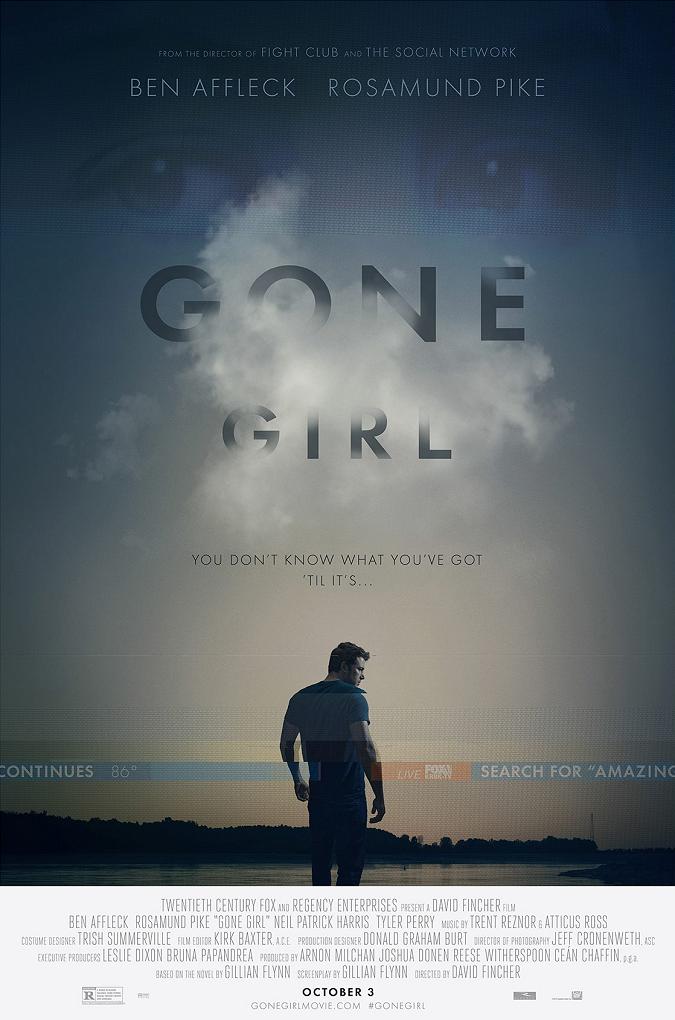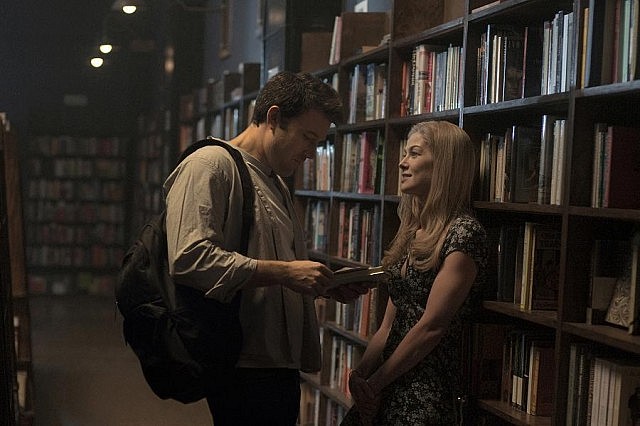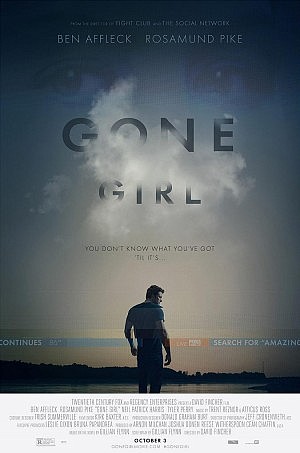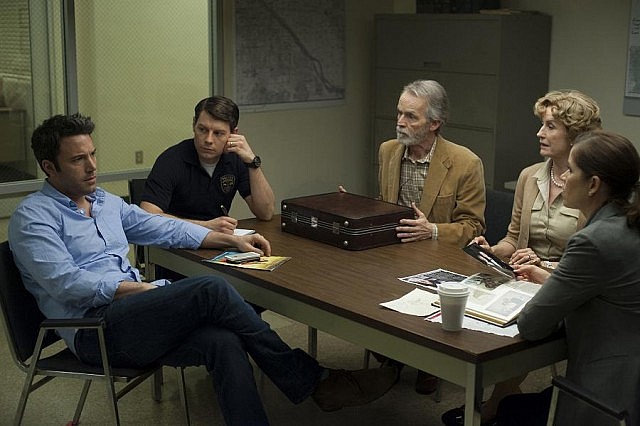
It’s a sign of the times when America’s premiere techno-sexual misanthrope is dictating how men and women should feel towards one and other — and, not surprisingly, it’s not a message of love. David Fincher’s boldly austere adaptation of Gillian Flynn’s thriller Gone Girl treads similar thematic threads to his previous work, a rather flaccid and “so what?” inducing translation of Stieg Larsson’s troubling Girl With The Dragon Tattoo.
Both works centre around a deeply damaged male-female dynamic where both parties are damaged and thus depicted as consummately duplicitous. Though this masterful yarn will easily mop the floor with the competing Liam Neeson paint-by-numbers shoot ’em up du jour being released this weekend.
The misleading trailers suggest a cat-and-mouse whodunnit starring the male half of Gigli — and to a degree this is true — but this anti-date movie is a supremely pertinent discourse on gender roles in the total media age. It’s tempting to label the overarching narrative as deeply misogynistic, but everyone is made to be so inherently unlikable. Our “protagonist” may be male and we may discover the clues to the whereabouts of his missing wife at the same time, but rarely, if ever, do we root for him.
And here we have Ben Affleck carving out an unlikely second phase of his career: from slacker pinup to accolades maverick. It’s the dynamic switch that most men renowned for their looks dream of making before descending into network oblivion once the wrinkles set in. He gives a much better performance than likely anyone will want to admit.


Amy has left a series of riddles in the form of an anniversary scavenger hunt that tantalize at her fate. We are told that Amy is “high maintenance” so surely whoever took her will tire and return her.
At the moment of Nick’s proposal three years earlier, Amy is revealed to be the subject of a treasured yet exaggerated series of children’s books — “Amazing Amy” — which have already endeared her to the public. Her exposed childhood allows strangers to pick at the scabs and attracts a plethora of potential stalkers. It’s glossed over quickly, but lays fundamental foundation for the ensuing frenzy.
The primal questions of any intimate partnership swing heavily overhead: what do we really do to each other and drive each other to do? The pessimistic yet potentially realistic mentality of the opposite sex drives the other to achieve the worst possible stereotypes.
Fincher’s overly technical embellishment and head-spinning visual tricks — that so often distract the viewer from noticing how hollow his enterprises can be — are fortunately absent so that his unerring sense of pace can take the reigns.
However comparatively subtle Gone Girl may be, it’s never far from your mind that this is the maestro who directed The Game and The Social Network. The tightening stranglehold is greatly aided by another excellent score by Trent Reznor and Atticus Ross that ranges from almost abstract dial tones to whooshing electronic throbs.
So far, so Fincher. But once the evidence begins to fall heavily on Nick being the prime suspect, things really come alive. Legitimate abduction, or elaborate ruse? Either way, it’s probably going to end badly. Giving his and her experiences, the lines quickly blur between reality and fantasy.
The tabloid circus that erupts should feel like dystopian satire but, as anyone who watches CNN knows, it’s all too accurate. Right down to a shrill, bug-eyed crusading Nancy Grace clone who stirs the pot with her neon talons. Not behaving how the camera wants and selling versions of the truth are prized above all else. An excellently crafted sequence of talk show coercion feels like you’re watching the O.J. Simpson trial condensed into about 90 seconds and poignantly asks: are we ever getting the whole truth in these situations? In a time where posing for the wrong selfie can crumble a carefully calculated image, the answer is a resounding no.

Violence in the film is sparing, although appalling when deployed. But the real truth is that the only way to completely “murder” someone is to rob them of their dignity.
Gone Girl is a film of many great components, even if they occasionally feel at odds with themselves. Timely and ugly right down to its defiantly unsatisfying ending, this film will alienate audiences with its vicious unsentimentality.
At a time when our fledgling nation is struggling to cope with immense differences and unfathomable injustice towards the missing, it’s moderately motivating to see such a sobering account of media versus reality at the multiplexes.
Gone Girl – Official Trailer
All photos courtesy 20th Century Fox.

























